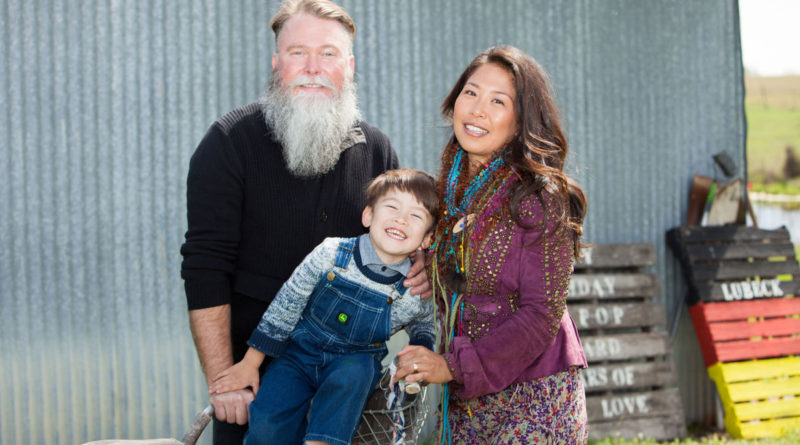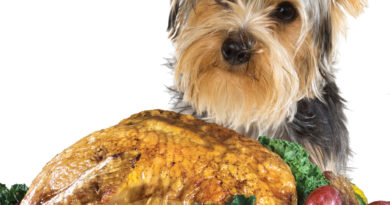Wolfgang’s garden — a work of heart
Wolfgang’s Garden and its many components began in the form of an egg, as so many things do.
The original idea to experiment with eggshell gardening was hatched by Wolfgang Gillmeister — a New York City native who moved to Troy a few years ago with his parents, Sebastian and Marjorie. He has been rocking the Bell County gardening and farmers market industry with his family ever since. And he’s only 4 years old.
“We eat a lot of eggs at our house,” Marjorie Gillmeister said. “I started wondering if there was anything else we could do with the shells besides composting them as fertilizer for the garden. Wolfgang said, ‘Mom let’s plant seeds in them.’ We Googled it and other people were doing it, but not to an extent of really studying it.”
The Gillmeisters decided to take it upon themselves to further research the benefits of, and care involved in, eggshell gardening.
Coming home to Texas
The Gillmeisters live on the family’s 100-acre farm that was purchased by Sebastian Gillmeister’s father in 1972. Sebastian grew up helping out on the farm, but left Temple for New York City after college to work in the fashion industry, where he met and married Marjorie, a fashion stylist.
“One day Wolfgang was born and we wanted a different quality of life for him,” Marjorie said. “We didn’t see ourselves raising him in New York. Then the perfect opportunity came to be with my husband’s family — his father is 91 now — and so we just moved everything and started over in 2014.”
Sebastian is vice president of merchandising for Todd Snyder, a men’s clothing collection that originated with J. Crew but branched off into its own line. He sometimes travels to New York City and the company’s factories, but was able to move his main office to Texas and enjoys helping out with the farm he grew up on.
“We just started experimenting with growing seeds,” Marjorie said of the farm’s beginnings. “Sure enough, any seed germinates in an eggshell pod. For example, lavender is one of the hardest things to grow. It needs three weeks of stratification, which means it has to undergo a cold treatment for the seed to come out of dormancy. But once you put the seeds inside an eggshell pod, they germinate within five to seven days.”
She said they discovered the trick for bolstering lavender growth simply by trying. The family has been studying the process for two years now and has a greenhouse full of about 700 eggshell pods, each containing some kind of young plant.
“After about four to six weeks of growth, when the root system is strong, the eggshell pod gets transplanted into the garden,” Marjorie said. “You crack the bottom so the roots are exposed, but leave the outside of the eggshell and plant it into the ground. The shell continues to feed calcium to the soil as the eggshell breaks down. It has 5 percent organic matter that feeds the soil, and sulfur, potassium and phosphorus, which plants also need to grow.”
The Gillmeisters’ garden grew with their eggshell pod experiments. Now they sell their organic vegetables and other plants at the Belton Farmers Market and to Megg’s Cafe and La Riv Restaurant in Temple. Everything they grow is started from seed, and the soil on their land is untapped and has no chemicals in it of any kind, according to Marjorie.
Future endeavors
The couple plans to begin building on the farm. They want to set up a vineyard and possibly a restaurant, Marjorie said, adding that Troy has beautiful land and needs such an establishment. They are in the process of prepping the field that will house the vineyard and are going to plant some test grapes soon. They envision having the vineyard underway within the next five or six years, she said.
The farm has cattle and a pecan orchard on it as well, both of which Marjorie is learning to manage. Last year she enrolled in a Master Gardeners course and graduated with the class of 2016.
“That has been an amazing journey,” she said. “I learned so much there, it’s been such a big support group, especially with the eggshell gardening.”
Through Master Gardener connections, Marjorie gives lectures on eggshell gardening at schools and church groups, to both adults and children.
“What’s fun is how much kids love it,” she said. “They love the process of watching their own seed grow. They can also paint the eggshells for the holidays and give them to people as gifts.”
One of Marjorie’s future ambitions for the farm includes creating a nonprofit. She plans to call it Carrots for Children.
“I’m just trying to work out the logistics,” she said. “The goal would be to feed and educate kids that can’t get outdoors and give them an opportunity to experience that part of life.”
A more immediate plan is to offer a pumpkin patch and hayrides on the farm this fall. The Gillmeisters also envision creating an artist commune of sorts, where locals could come and be immersed in nature and art.
“Children could come out here and paint eggshells and plant eggshells,” Marjorie said. “They could have a plot in the garden and do something creative if they don’t have access to other land. Stuff like that. Painters could come out here and paint landscapes all day if they want, they could camp out. We’d also love to have yoga classes here.”
The family’s motto fits perfectly with their vision. Their saying is, “Our garden is a work of heart.”
With all the additions will of course come more work. Marjorie said she’d like to accommodate for the growth by eventually bringing on interns interested in agriculture.
For now, though, it’s just the Gillmeisters, growing their farm one eggshell at a time.
“It’s been a full on production trying to get the land to be productive again,” Marjorie said. “For a long time it was just hay grazer and for the cows to roam, but we are finding a lot of potential here, especially because we don’t use pesticides or insecticides. It’s a happy ecosystem here, everything is thriving.”
The ranch has already been in the Gillmeister family for 45 years, and Marjorie is looking forward to celebrating the 50th anniversary. Her dream is to pass it down to the next generation someday.
Wolfgang said he likes helping his mom on the farm every day.
“I like working,” he said. “I like getting dirty and muddy.”
As someone who had been living in New York City for 20 years, Marjorie said she never imagined she’d end up living on a farm in Central Texas.
“Before we had Wolfgang we were so engulfed in the rat race and the fashion industry,” she said. “I was always traveling and just on the go nonstop — 12- to 15-hour workdays sometimes — and I thought ‘I don’t think I can have a family with this kind of work.’”
She said when she first visited the farm with Sebastian a few years ago, she immediately thought, “I could do this, I could be a farmer.” It turns out her skills from the fashion industry transfer well to the agriculture world.
“You have to have organization,” she said of both jobs. “You have to know what’s in season. Of course, here you’re out in nature. It’s hard work, but its work you want to do and you get up every morning and feel completely gratified by it.”
Marjorie said a difference is that working close to the earth all day has given her a sense of gratitude, as well as a love for feeding the community and supporting local farmers and artists.
“I love to see people’s response to all this,” she said. “They love buying fresh produce and knowing who is growing their food. It gives us such gratification.”




